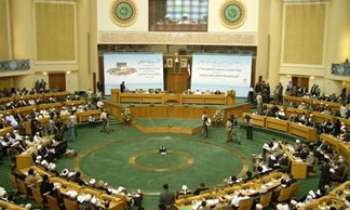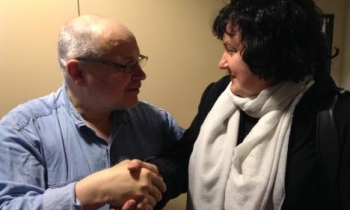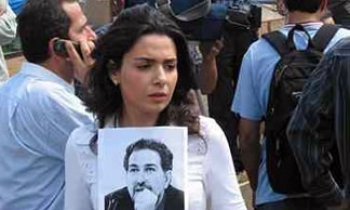Waleed Khaled was shot by US troops last week while working for Reuters TV. In response US army spokesman General Rick Lynch claimed that the US soldiers "took appropriate measures".
Lynch said, "What our soldiers on the scene saw was a car travelling forward at a high rate of speed. It looked like cars that we have seen in the past used as suicide bombs and there were two local nationals inside."
Khaled had two press cards pinned to his chest at the time, one issued by the US army and the other issued by the British news agency. Both cards were found covered in blood and one of them had two bullet holes.
The killing brings home that the biggest threat to journalists in Iraq comes from the US military. At least 16 independent journalists have been killed by US troops since the war began.
According to Reporters Without Borders, 67 journalists have died so far in the conflict, more than in 20 years of the Vietnam War. The leading cause of deaths is the US military and "security contractors".
Sometimes the contractors pose as journalists to gather information on the resistance. This puts us all in jeopardy, because we are all suspected of being spies or collaborators. Add to that the general levels of crime, the kidnapping rings and random violence, and Iraq is an extremely difficult place to work in.
It is not surprising that most news networks forbid their correspondents from going outside their hotels. But these journalists are writing stories as if they are going out and reporting.
Robert Fisk calls this "hotel journalism" – reporters parroting military briefings or relying on Iraqi sources for information which may or may not be trustworthy.
The role of a journalist is to check facts. For example in November 2003 the US military announced that one of their convoys was attacked by a huge contingent of resistance fighters in Samara, northern Iraq. They claimed that in the ensuing battle they killed 48 fighters. The next day they bumped the figure up to 53.
A couple of days after the battle a few independent journalists drove to Samara. We interviewed two leading religious figures in the city.
We visited the scene of the battle and spoke to eyewitnesses. We went to the morgue to count bodies. We talked to doctors and interviewed the wounded. Everyone told the same story. The convoy was attacked by "one or two" fighters, the soldiers panicked and opened fire on everyone they could see. They killed eight civilians and wounded dozen of others.
Neither the media nor the military corrected their stories, instead they spun the event as a victory over the resistance. That’s what differentiates our reporting from much of the mainstream media. We attempt to check facts, and take risks to uncover the truth.
The mainstream journalists have to toe an editorial line. We take the people’s perspective and start from the ground up. You always have to ask, "What are ordinary people saying?"
Some of my colleagues will embed with the military to take "the temperature" of the troops and report on morale.
There are some embedded journalists who have exposed incidents involving US troops – the best example is the journalist who filmed the execution of a wounded resistance fighter in a mosque in Fallujah last November.
But unless you are embedding to report on the troops, you can only report what the military wants you to report, and go where they take you. This is not journalism.
There are also problems reporting on the resistance. The resistance is complex, some of them are ex-military, some are former Baathists.
But many fighters I have spoken to are motivated by anger at the occupation, or want revenge for a military strike on their city or the death of a loved one at the hands of foreign troops.
Often they tell me they are only defending their homeland. They are ordinary people who will not accept the occupation.
But both the media and the military talk constantly of "foreign fighters". Even the BBC at one point claimed that Abu Musab al-Zarqawi and Al Qaida were organising the defence of Fallujah from outside the city by telephone.
They call al-Zarqawi the "leader of the Iraqi resistance" despite never providing any hard proof that he exists. I investigated the Zarqawi phenomena in May 2005. Not one of the Iraqis I interviewed considered him the leader of the resistance.
We have the same problem with the reporting of sectarianism. All you hear is about "communities" on the verge of civil war.
In February 2005 I decided to investigate the impact of sectarianism, but whenever I asked an Iraqi, "Are you Shia or Sunni?" they simply replied, "We are Iraqis and Muslims". They were at pains to point out the integration of Sunni and Shia, whether by marriage or by tribe.
During my investigation I interviewed Sheikh Muayad al-Ahmedi, the imam of the Abu Hanifa mosque in Baghdad, one of the most important Sunni mosques in the country. He told me that when the Shia Khadamiya mosque was attacked by suicide bombers he called for blood donors and thousands of people turned up. They did not ask, "Is this Shia blood or Sunni blood?"
Similarly during the attack on Fallujah the Shias rushed to support the Sunnis.
In one incident Shias broke through a US roadblock to get aid into the beleaguered city. The imam told me that these two incidents were important in sealing the bond between Sunnis and Shias. In return Sunnis donated blood and rushed to the aid of Shia worshipers caught in the stampede in Baghdad.
However I have also found that sectarianism is taking root. Many Iraqis tell you that there is a "state sponsored" civil war, with US-backed sectarian militias kidnapping and killing. There are religious leaders who are pushing sectarianism.
Sectarianism is a danger, but we should not underestimate how strong the bond is between the Shia and the Sunnis.









